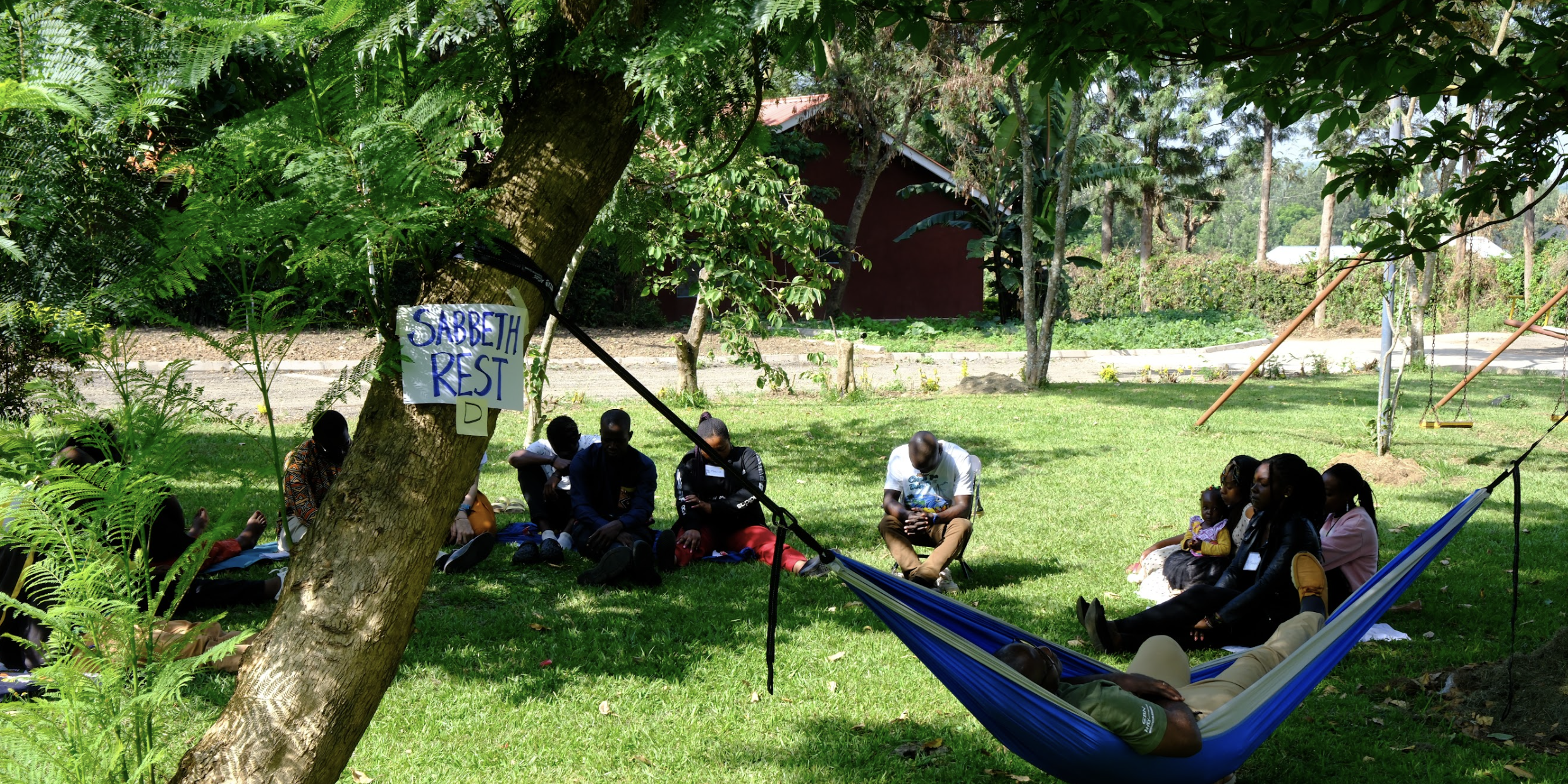Globally, the practice of self-care, deliberately taking care of ourselves through restorative practices, is a misunderstood, neglected and under-valued subject. Life is full and we all seem short of time.
In Africa, we often hear from practitioners that days off don’t exist, that vacations are not common and that people just keep working. Among those who experience economic poverty, everyday is a hustle to keep food on the table, and we find that caregivers’ work never ends. Many are also involved in local church leadership so Sunday is another work day. In community-based cultures, there is so much emphasis on community needs, demands, participation, availability, and rest is something that is not really built into the culture. Many times caregivers spend so much time taking care of others that they forget that they need to take a break and be replenished, re-filled, renewed.
However the Bible comes in with a different perspective. To a nation that had work 24/7 365 days, the Ten Commandments were revolutionary. One in seven days you will rest! You are no longer a slave. The concept relates back to the creation story where God rested and enjoyed what he had created. Probably the most famous Psalm, Psalm 23, says “The Lord is my shepherd, I lack nothing. He makes me lie down in green pastures,
He leads me beside quiet waters, he refreshes my soul.” Jesus, in the midst of demanding ministry needs, says to the disciples, “Come with me by yourselves to a quiet place and get some rest.” In our capacity training we both teach this for personal and organizational sustainability and seek to model it. Rest is a Biblical value that stresses a time of stopping, resting, celebration, of evaluation and perspective.
Scientific studies emphasize this critical need for humans. According to the National Institute for Health, “Self-care means taking the time to do things that help you live well and improve both your physical health and mental health. This can help you manage stress, lower your risk of illness, and increase your energy. Even small acts of self-care in your daily life can have a big impact.”
In February, during our last CCW training in Arusha, Tanzania we intentionally devoted time to emphasizing the importance of the practice of self-care. Five different stations were created around the facility where we were. The participants were divided into groups and group by group they rotated through the program so that they could personally experience each form of refreshment and renewal. At each station context was given to the necessary practices and then the fun began.
We learned much about each other through people shyly starting to share about their hobbies or what they would love to do. There was laughter in the group doing planks and different body weight exercises; smiles in the group practicing social connections and sharing life; reflection in the group doing the Examen prayer and sitting in God’s presence; and in the “Rest” group, some literally fell asleep in the hammock and all enjoyed the beauty of sunshine and the lovely gardens.
One of the participants, a leader in Uganda, Charles Syemi said, “I remember one of the stations that impacted me was in the areas of Rest. It made so much sense that we need to rest in God’s presence. I learnt that I need to take time away and rest in the presence of God and around nature… I have continued to take time off to rest away from my daily responsibilities. I chose Tuesdays every week to give for myself.” Charles leads a large training facility in Jinja, that includes oversight of a pre-school and primary school. African leaders always astound us in their ability to hear truth, weigh it and then apply it. As the Northern hemisphere’s summer draws towards a close, we hope you have taken time to pull aside and practice self-care. May our practice of self-care rejuvenate us and fill us with joy for further service in our communities.








